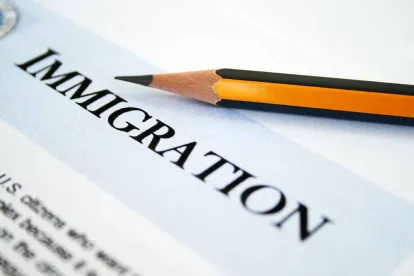The L-1B nonimmigrant visa program is regularly utilized by companies to transfer employees with specialized knowledge from foreign countries to the United States. According to a recent analysis, the program continues to experience significant denial rates, raising questions about the underlying causes of the phenomenon.
L1-B Visa Program
The L1-B Visa Program allows employers to transfer certain nonimmigrant employees from foreign offices to offices within the United States. Specifically, the employment-based nonimmigrant visa program allows the transfer of professional employees with specialized knowledge relating to the organization’s interests from foreign offices to the United States, sometimes even to establish a U.S. office. To qualify under the program, the employee must possess “specialized knowledge,” which, according to the U.S. Citizenship and Immigration Service (“USCIS”), requires knowledge of the petitioning employer’s product, service, research, equipment, techniques, management, or other interests. USCIS evaluates L-1B petitions on a case-by-case basis.
In practice, L-1B petitions are filed by employers on behalf of their employees seeking intracompany transfer. While an employer may file an L-1B petition for an individual employee, larger companies may have the option to file a “blanket petition” so long as the company meets certain criteria. When petitioning for individual employees, the petition must be approved and then taken to a U.S. consulate for approval. For blanket petitions that have been approved, the employer need only submit a Form 129S, Nonimmigrant Petition Based on Blanket L Petition, which then may be taken to a consulate for approval.
High Denial Rates of L-1B Petitions
A recent article by Forbes analyzed government data concerning L-1B petitions and detailed their trends over the last decade. During that period, the average denial rate for L1-B petitions was 28.2%, a significant number, especially considering the denial rate for H-1B petitions averages under 5%. While the denial rate declined to 21.3% in the third quarter of the fiscal year 2021 and 20.7% in the fourth quarter, the denial rates were 32.7% and 33.3% respectively for the first two fiscal quarters of 2021.
Given that L-1B petitions appear to receive greater scrutiny than other business nonimmigrant visas, one must wonder what causes the denial rate, and what steps can be taken to ensure approval of such a petition.
Explanations for High L-1B Denial Rates
The unusually high denial rate for L-1B petitions could be explained in part by the high bar set by USCIS in adjudicating the petitions. However, at least one attorney noted the case-by-case nature of the petitions do not easily lend itself to a simple adjudication process, noting that “USCIS applies [the standard] in a way that favors documentary evidence while discounting the company’s own assessments of the worker’s importance and knowledge […]” While the USCIS Policy Manual provides immigration officers with some guidance, more comprehensive guidance could certainly be helpful.
In response to the investigation conducted by Forbes, USCIS commented,
“USCIS officers review each L-1B petition on a case-by-case basis to determine if they meet all standards required under applicable laws, regulations, and policies. […] The agency will continue to solicit feedback from stakeholders to identify procedural efficiencies and promote policies that break down barriers in the lawful immigration system.”
Additionally, the denial rate can be attributed at least in part to the political implications of the executive branch. For the fiscal year 2021, the improvement that can be detected in the L-1B denial rate followed President Biden’s assumption of office. This shift may be attributed not to a more liberal implementation of policy, but rather to the reinstatement of the USCIS policy of giving deference to previous decisions. This deference does not extend to petitions or applications made by Customs and Border Protection (“CBP”) or Department of State (“DOS”) officials.
The high denial rate for L-1B petitions serves to frustrate employers, and even discourages foreign investment in the United States. While the petitions continue to receive increased scrutiny, it is advisable to take the utmost care in the preparation of applications and ensure that all are supported with sufficient evidence and documentation.



 />i
/>i
